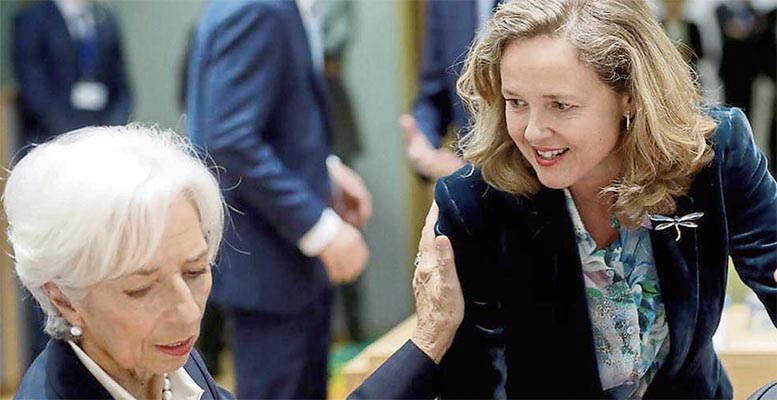The European Council will discuss the European Recovery Fund at its meeting on Thursday 23 April. If last week France was talking about a fund of 500 billion euros, while Italy continues to insist on coronabonds, now Spain is proposing an up to 1.5 trillion euros fund, financed by perpetual debt issued by the EU. It would be distributed as direct transfers limited to the crisis duration (and not debt) amongst the most affected countries (in terms of percentage of population affected, fall in GDP or increase in unemployment), and would be non-refundable. This would be an attempt to avoid the issue of coronabonds by setting up a large fund linked to the EU budget. With this instrument, only interest would be paid. And this would be taken on in solidarity and financed, at least partly, via taxes at a European level, for example on environmental policies (CO2 emissions). The intention is for this funding to be available on 1 January 2021.
The plan also proposes progress towards greater tax harmonisation to avoid a capital flight of revenue, especially corporate tax. On Thursday, the 540 billion euro package agreed by the Eurogroup last week will also be approved. It focuses not on post-Coronavirus recovery but on providing the most urgently needed liquidity in the short term, and funding should be available by June 1. The market does not seem to have many expectations, with the yields of peripheral countries and spreads rebounding. Particularly in Italy, which is already close to levels prior to the ECB’s PEPP announced on March 19.
During her press conference in Berlin, Merkel relaxed positions a couple of days ahead of the key European Council meeting, by opening up to new instruments of aid. “Germany does not only want to act with solidarity, we will act with solidarity,” Merkel stated. She said she is prepared to finance the recovery through a larger EU budget by issuing bonds through the EC. She even appeared open to changing the Treaties, but reminded that this would be a long process.
For his part, Italian Prime Minister, Giuseppe Conte, seems sceptical about achieving a “definitive solution” at the next European Council, one which would allow the EU economies to recover from the coronavirus crisis. For the time being, the European Commissioner for the Internal Market and Services, Thierry Breton, stated that he would be working with the Commissioner for Economic and Financial Affairs, Paolo Gentiloni, on drafting a stimulus package valued at 1.6 trillion euros.
There is almost a consensus amongst analysts that European leaders will most likely simply sign off on the details of the measures agreed at Easter, such as the activation of financial support by the ESM. And also that there is a strong possibility of another inconclusive confrontation. So Spain’s proposals will probably have to wait for further discussions.





